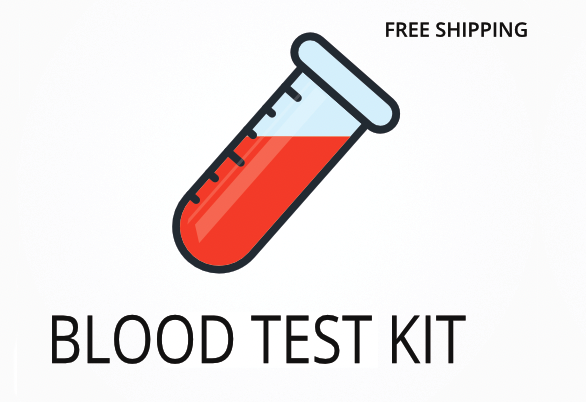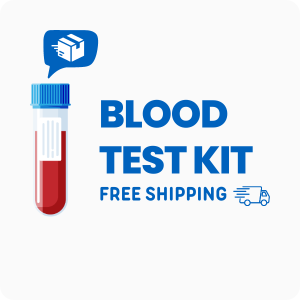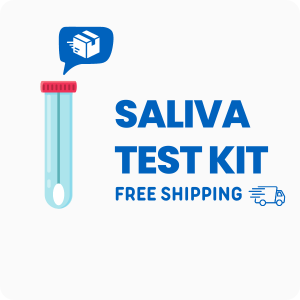Ordering the Irritable Bowel/SIBO Screen | Cyrex Array #22
The Irritable Bowel/SIBO Screen | Cyrex Array #22 helps identify immune responses to bacterial toxins and gut lining proteins, which can be linked to digestive discomfort, bloating, and changes in bowel habits. This test is especially useful for those who have ongoing digestive symptoms that have not improved with common dietary changes or over-the-counter remedies. Interestingly, this test can also detect immune reactions that may be present even before symptoms become noticeable, offering a chance to address gut issues early.
Ordering this test can help you:
- Pinpoint immune reactions to specific bacterial toxins in the gut.
- Detect early signs of gut lining damage before symptoms worsen.
- Identify possible links between gut issues and food intolerances.
- Support targeted treatment plans for digestive symptoms.
- Monitor changes in gut health over time with repeat testing.
Who Should Consider Gut Bacteria and Digestive Health Testing
People who have frequent bloating, gas, or stomach cramps after eating, and those who notice changes in their stool, may benefit from this test. For example, someone who has tried removing gluten or dairy from their meals but still feels tired, foggy, or uncomfortable after eating could use this test to find out if their immune system is reacting to gut bacteria or proteins.
Ordering this test may also be helpful if you:
- Have unexplained constipation or diarrhea that comes and goes.
- Experience fatigue or brain fog that seems linked to meals.
- Notice skin rashes or joint pain that flare up with digestive symptoms.
- Have a family history of autoimmune conditions and want to check for early gut changes.
- Recently traveled and developed new digestive symptoms that have not resolved.
Testing for immune reactions to gut bacteria and proteins can help you find out if your symptoms are related to changes in your gut lining or bacterial overgrowth, which can be measured and tracked over time. Delaying this test could mean missing the chance to catch early immune changes that may become harder to manage if left unchecked.
How to Prepare for Digestive Immune Response Testing
Fasting is not required for this test, but you should review the kit instructions for any specific preparation steps. Always follow the directions provided by your doctor or healthcare practitioner to make sure your sample is collected correctly and your results are as useful as possible.
Labs Included When Ordering Your Irritable Bowel/SIBO Screen | Cyrex Array #22
| Test Name | Reference Range | What This Biomarker Means | Low and High Levels of Irritable Bowel/SIBO Screen | Cyrex Array #22 |
|---|---|---|---|
| Bacterial Cytotoxins IgG | 0-19 | This marker checks for long-term immune responses to toxins made by gut bacteria. It can show if your body has been exposed to these toxins over time. |
High levels mean your immune system has been reacting to bacterial toxins, which may point to ongoing gut irritation or overgrowth.
Low levels mean there is little or no immune response to these toxins, suggesting less exposure or reaction. |
| Bacterial Cytotoxins IgA | 0-19 | This marker measures short-term or recent immune reactions in the gut lining to bacterial toxins. It helps show if your gut is currently irritated. |
High levels mean your gut lining is actively responding to bacterial toxins, which may be linked to current digestive symptoms.
Low levels mean there is little recent immune activity against these toxins. |
| Bacterial Cytotoxins IgM | 0-19 | This marker shows early or first-time immune responses to bacterial toxins. It can help spot new or recent gut issues. |
High levels mean your immune system is reacting for the first time or to a new exposure to bacterial toxins.
Low levels mean there is no new or recent immune response to these toxins. |
| Cytoskeletal Proteins IgG | 0-19 | This marker checks for long-term immune reactions to proteins that make up the gut lining. It can show if your body has been attacking its own gut lining over time. |
High levels mean your immune system has been reacting to gut lining proteins, which may suggest ongoing gut barrier damage.
Low levels mean there is little or no immune response to these proteins. |
| Cytoskeletal Proteins IgA | 0-19 | This marker measures short-term immune reactions in the gut lining to its own proteins. It helps show if there is current gut lining irritation. |
High levels mean your gut lining is actively being targeted by the immune system, which may be linked to current gut symptoms.
Low levels mean there is little recent immune activity against these proteins. |
| Cytoskeletal Proteins IgM | 0-19 | This marker shows early immune responses to gut lining proteins. It can help spot new or recent damage to the gut barrier. |
High levels mean your immune system is reacting for the first time or to a new exposure to gut lining proteins.
Low levels mean there is no new or recent immune response to these proteins. |
Reference ranges may change slightly as labs update their methods or as new research becomes available.
Irritable Bowel/SIBO Screen | Cyrex Array #22 FAQ
Is there Irritable Bowel/SIBO Screen | Cyrex Array #22 testing near me?
This is a test kit that you can use locally, and you can check the draw location link at the top of the page for nearby collection sites. For those dealing with unpredictable digestive symptoms, having a convenient location makes it easier to get your sample collected without added stress or travel.
How do I interpret the test results?
While your treating physician should review your results, we also offer a one-on-one test results review with our clinical team to help you understand your results and next steps.
What is the cost of the test?
The price listed for this test includes standard shipping to you and return shipping to the lab, though draw fees may apply. Ordering this test can help you quickly identify immune reactions linked to gut symptoms, so you can start targeted care sooner.
How often should I retest?
Retesting is usually recommended every 6-12 months, especially if you are monitoring changes in gut symptoms or treatment progress. Regular testing helps track immune responses and can show if your gut is healing or if new issues are developing.
How accurate is the test?
This test uses ELISA (enzyme-linked immunosorbent assay) technology to measure immune responses, with a specificity of 98% and sensitivity of 97%. TrueHealthLabs.com partners with CLIA-certified and CAP-certified laboratories to uphold rigorous testing standards for dependable results.
Important Notes
- It is recommended to be clear of immunosuppressants and/or corticosteroids for at least 60 days prior to taking this test. Please consult with your prescribing healthcare provider.
- NOT AVAILABLE IN NEW YORK. SPECIMEN DRAWS CAN BE COMPLETED IN NEIGHBORING STATES.
- We are now accepting international orders. Sample must be received within 7 days. Additional return shipping fees may apply.
- READ: IMPORTANT Cyrex FAQs
- Due to circumstances beyond our control, pediatric blood draws are not included under Cyrex’s contracted phlebotomy. All patients 15 years of age and younger are included in the pediatric group. Pediatric blood draws must be scheduled by the parents at a laboratory of their choosing, and must be paid for by the parent at the time of service.
Medical Review Board
Reviewed by Jeff Donohue M.D. from Body Logic and Brady Hurst DC, CCCN. Written by True Health Lab’s team of editorial health contributors.
Disclaimer: This information is for educational purposes only and not intended as medical advice. Consult your healthcare provider for personalized guidance.
Why Customers Trust True Health Labs - What People are saying
Also rated 4.6 out of 5 based on 3452 ShopperApproved reviews- See all TrueHealthLabs.com reviews.








